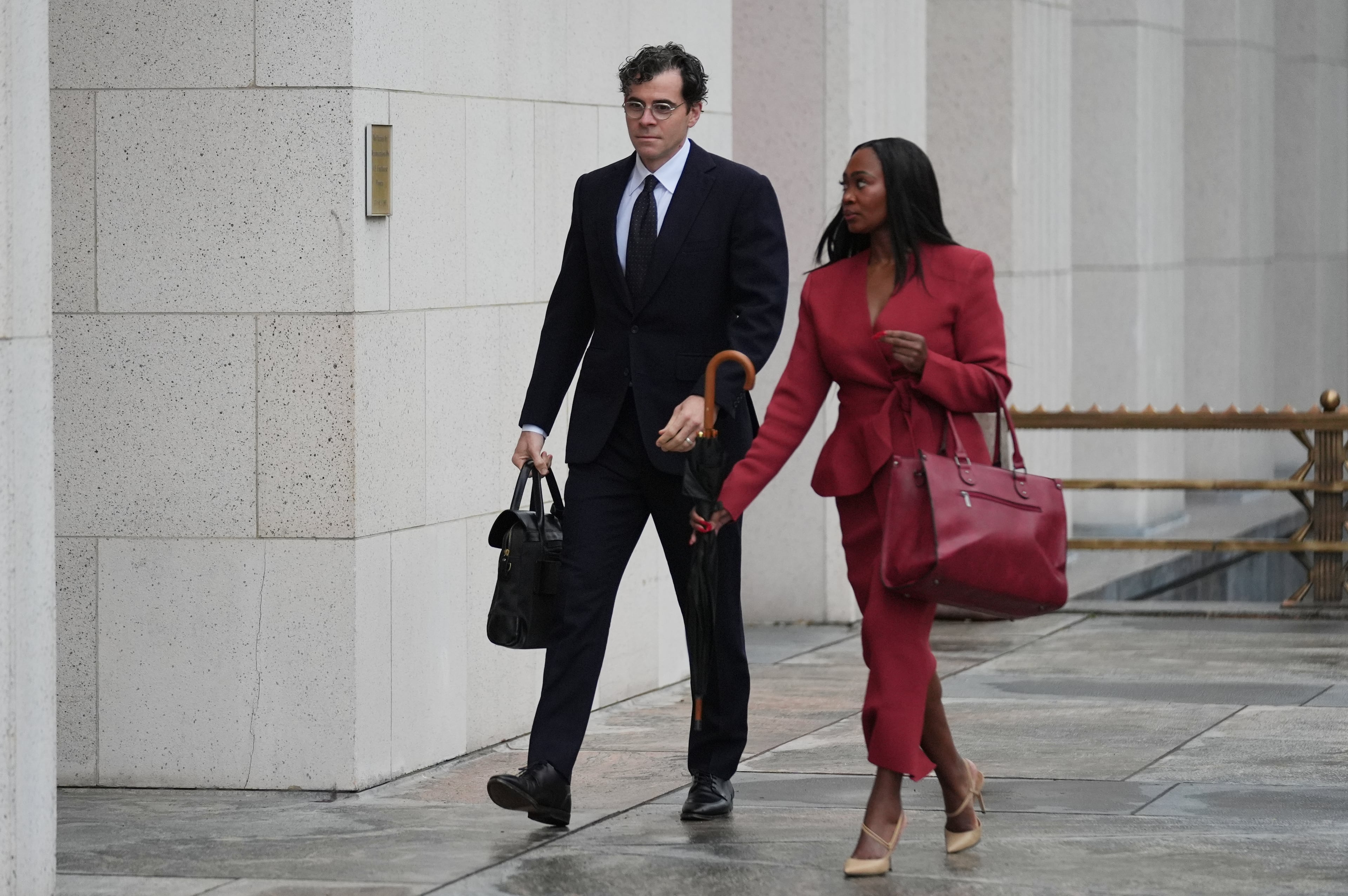Judge hands gangster 24 years for kidnapping Tekashi 6ix9ine
A New York City street gang leader convicted in the violent 2018 kidnapping of rapper Tekashi 6ix9ine has been sentenced to 24 years in prison.
Anthony “Harv” Ellison, 33, who has been in a federal lockup in Manhattan since the trial ended in 2019, was sent away Wednesday by U.S. District Judge Paul A. Engelmayer, according to The Associated Press.
»2019: Rapper Tekashi69 sentenced to 2 years in prison for racketeering
Ellison was the leader of a ruthless faction of the Nine Trey Gangsta Bloods, according to prosecutors.
“I’m not an angel, but I’m not a monster,” Ellison told the judge during sentencing, according to the AP. “I do have faults. I am human.”
During the two-hour proceeding, Engelmayer repeatedly cited the July 2018 episode in which Ellison kidnapped Tekashi 6ix9ine and brutally slashed the face of another man, leaving him permanently disfigured from his ear to his chin, the AP reported.
The man’s wound is reportedly so gruesome that the judge wouldn’t allow photos of it to reach the jury.
Engelmayer described Ellison as “cruel and vicious” for “slicing open a man’s face” which he did to avenge a shooting, however, it was later found that the victim was not involved.
Tekashi 6ix9ine — whose legal name is Daniel Hernandez — joined the ruthless gang in 2018 when he was a fledgling rapper, motivated to boost his public street persona and his rap career.
That same year, he had a multiplatinum hit song, “Fefe,” with Nicki Minaj, which peaked at No. 3 on the pop charts, and “Stoopid,” featuring imprisoned rapper Bobby Shmurda.
Still, the flamboyant artist was mostly an unknown in the music world.
As a member of the gang, Hernandez committed a litany of serious crimes, including racketeering, for which he was sentenced to two years in federal prison in December 2019.
In April, he began serving home confinement for the last four months of a two-year prison term he was given for his role in a drive-by shooting in New York. Weeks later, he released a new video, “Gooba.”
Court documents showed prosecutors argued for Tekashi’s early release because of his exceptional cooperation with the government to convict his former friends.
During the trial, Tekashi 6ix9ine expressed regret for joining the gang, apologizing to his family, his fans and the victims in the case.
“I’m not a victim. I put myself in this position from Day 1,” he said, breaking down in tears shortly after seeing his biological father, whom he says he hadn’t seen since the third grade, in the courtroom. He then read from a lengthy letter, saying, “I made a lot of bad choices in life, but that does not make me a bad person.”
The rapper testified about his involvement with the gang. He described the kidnapping, saying Ellison and another man forced him into a stolen car at gunpoint. He said the men drove him around, stopping sometimes to beat and taunt him as he begged for his life.
The men ultimately took him to his Brooklyn home, where they stole a bag full of jewelry before driving him a few blocks away and releasing him, he said.
Tekashi’s testimony was mostly responsible for helping convict two top-ranking members of the Nine Trey Gangsta Bloods for racketeering conspiracy, multiple robberies, assaults and other felonies, including the robbery and kidnapping of Hernandez himself.
Hernandez provided investigators “an insider’s view of Nine Trey and a firsthand account of many acts of violence” that led to multiple convictions, prosecutors said.
The other gang leader on trial alongside Ellison was Aljermiah “Nuke” Mack, who is also scheduled to be sentenced in the case.
In September 2019, the co-defendants went on trial in a Manhattan courtroom as Hernandez took the witness stand against them.
Hernandez had already pleaded guilty to nine federal charges ranging from racketeering, armed robbery and conspiracy to commit murder.
In exchange for his “extraordinary cooperation,” prosecutors asked Engelmayer in a Dec. 4 memo to impose a lighter sentence, saying Hernandez’s help was “both incredibly significant and extremely useful.”
The rapper’s cooperation with federal authorities had him in hot water for a while with hip-hop fans and artists.
Since becoming a witness for the government, Hernandez has been the subject of negative press, diss tracks and relentless snitch memes that have swept the internet, calling out the rapper for violating the “code of silence.”
Since his release from prison, the rapper has returned to the spotlight, making albums and music videos.
Information provided by The Associated Press was used to supplement this report.
More Stories
The Latest


